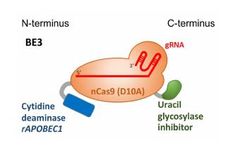Corn Rootworm Articles & Analysis
7 articles found
In 2011, they announced a breakthrough: corn genetically modified to produce an RNAi that targets the western corn rootworm. This pest costs American farmers over $1 billion annually in damages and control measures. The RNAi-produced corn could resist the rootworm without the need for insecticides, reducing ...
As part of the ecological risk assessment of MON 87411 maize, that expresses a dsRNA targeting the Snf7 ortholog (DvSnf7) in Western Corn Rootworm (WCR; Diabrotica virgifera virgifera), dietary feeding studies with honey bee larvae and adults were conducted. ...
Transgenic Bt (Bacillus thuringiensis) corn (Zea mays L.) hybrids with resistance to corn rootworm (CRW; Diabrotica spp.) or European corn borer [ECB; Ostrinia nubilalis (Hübner)] can have greater tolerance to water and nutrient stress, and thus may have higher optimum plant densities. ...
Stacked (two to three transgenic traits) corn (Zea mays L.) hybrids represented 40% of U.S. corn in 2008, despite limited agronomic studies. ...
However, as herbicide-tolerance and insecticidal traits are often simultaneously expressed by individual plants, glyphosate [N-(phosphonomethyl) glycine]-resistant (GR) volunteer corn is becoming a widespread problem as a weed in corn-soybean rotational systems. We show that these volunteer corn plants not only have herbicide-tolerance genes but ...
Recent speculation of slower residue decomposition for Bacillus thuringiensis (Bt) corn (Zea mays L.) hybrids compared with non-Bt corn hybrids has prompted investigative study. ...
Western corn rootworm (Diabrotica virgifera virgifera Le Conte) is the major insect pest in the corn phase of a corn (Zea mays L.) silage–perennial forage rotation. Dairy producers may prefer seed-applied instead of soil-applied insecticides for rootworm control because of ease of use and additional control of ...



